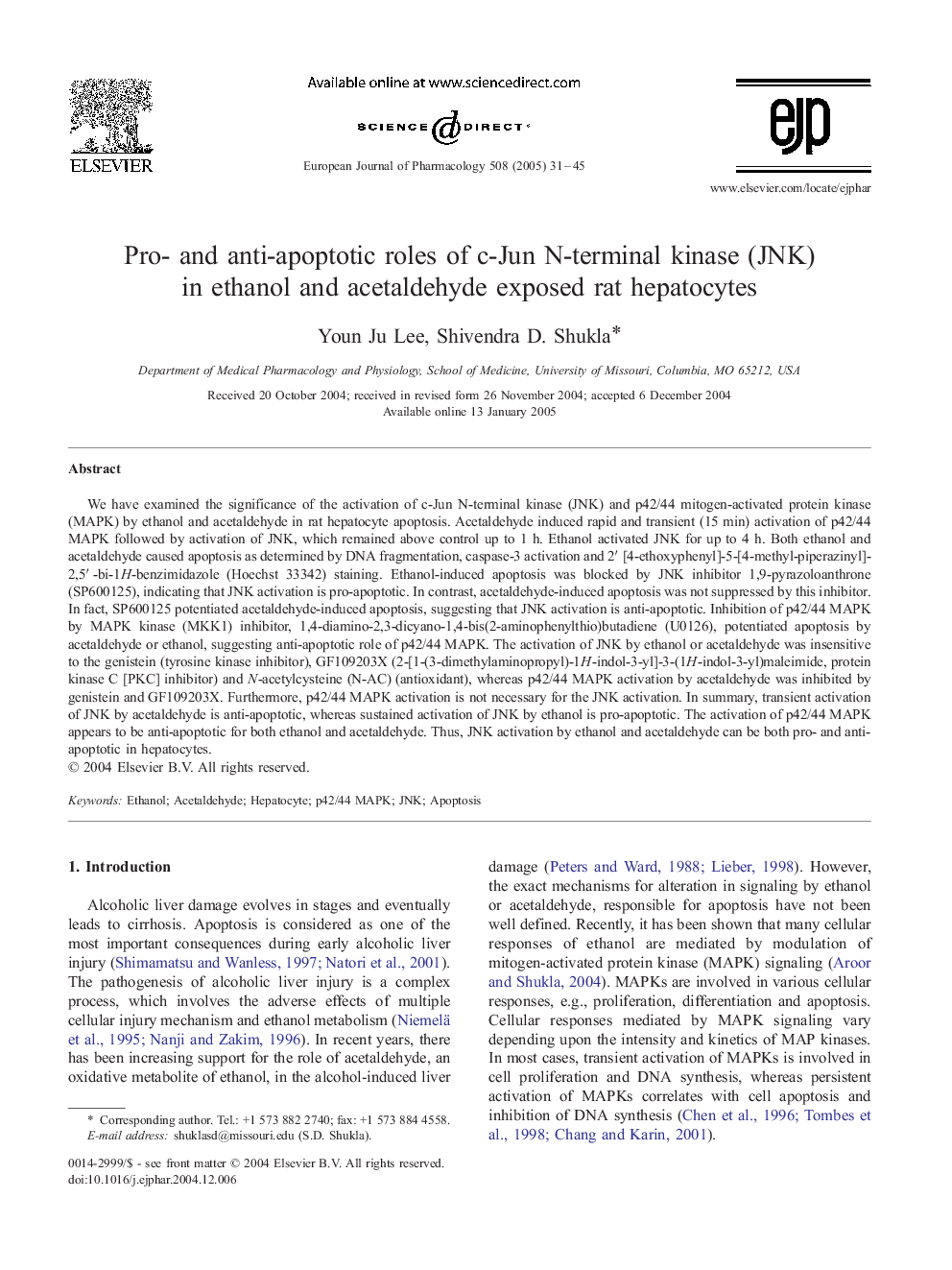| Article ID | Journal | Published Year | Pages | File Type |
|---|---|---|---|---|
| 9921518 | European Journal of Pharmacology | 2005 | 15 Pages |
Abstract
We have examined the significance of the activation of c-Jun N-terminal kinase (JNK) and p42/44 mitogen-activated protein kinase (MAPK) by ethanol and acetaldehyde in rat hepatocyte apoptosis. Acetaldehyde induced rapid and transient (15 min) activation of p42/44 MAPK followed by activation of JNK, which remained above control up to 1 h. Ethanol activated JNK for up to 4 h. Both ethanol and acetaldehyde caused apoptosis as determined by DNA fragmentation, caspase-3 activation and 2â²[4-ethoxyphenyl]-5-[4-methyl-piperazinyl]-2,5â²-bi-1H-benzimidazole (Hoechst 33342) staining. Ethanol-induced apoptosis was blocked by JNK inhibitor 1,9-pyrazoloanthrone (SP600125), indicating that JNK activation is pro-apoptotic. In contrast, acetaldehyde-induced apoptosis was not suppressed by this inhibitor. In fact, SP600125 potentiated acetaldehyde-induced apoptosis, suggesting that JNK activation is anti-apoptotic. Inhibition of p42/44 MAPK by MAPK kinase (MKK1) inhibitor, 1,4-diamino-2,3-dicyano-1,4-bis(2-aminophenylthio)butadiene (U0126), potentiated apoptosis by acetaldehyde or ethanol, suggesting anti-apoptotic role of p42/44 MAPK. The activation of JNK by ethanol or acetaldehyde was insensitive to the genistein (tyrosine kinase inhibitor), GF109203X (2-[1-(3-dimethylaminopropyl)-1H-indol-3-yl]-3-(1H-indol-3-yl)maleimide, protein kinase C [PKC] inhibitor) and N-acetylcysteine (N-AC) (antioxidant), whereas p42/44 MAPK activation by acetaldehyde was inhibited by genistein and GF109203X. Furthermore, p42/44 MAPK activation is not necessary for the JNK activation. In summary, transient activation of JNK by acetaldehyde is anti-apoptotic, whereas sustained activation of JNK by ethanol is pro-apoptotic. The activation of p42/44 MAPK appears to be anti-apoptotic for both ethanol and acetaldehyde. Thus, JNK activation by ethanol and acetaldehyde can be both pro- and anti-apoptotic in hepatocytes.
Related Topics
Life Sciences
Neuroscience
Cellular and Molecular Neuroscience
Authors
Youn Ju Lee, Shivendra D. Shukla,
